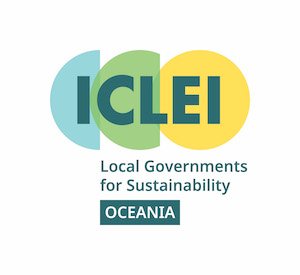Growing fresh produce in low-lying Kiribati
The low-lying atolls of Kiribati in the Pacific are now frequently flooded by seawater. Soils and groundwater are becoming too salty for drinking or growing crops, causing food stress and poor health. This IKI-funded initiative is working with some of the most vulnerable villages to develop new approaches to growing fresh produce.
ICLEI is working with Pacific partners Commonwealth Local Government Forum and the Kiribati Local Government Association to support some villages in South Tarawa, Kiribati, which are most threatened by rising sea levels and other climate impacts. Their highest point is only 3 metres above sea level. Every time there is a spring tide or onshore winds, sea water floods the roads and villages. The soil is becoming too salty to grow vegetables and the water is too salty to drink.
This project, funded by the German Government IKI program, is helping the villagers develop new techniques for growing crops above ground, using composted seaweed and organics and trialling Biochar to combat salinity and retain moisture. Some villages will also set up small pig and chicken farming enterprises. This will result in more locally produced, healthy produce and less reliance on imported packaged and canned foods. Training in household food gardens and livestock management is now underway and it is planned to scale up these new approaches to other parts of Kiribati once shown to be successful.
Article written by: Steve Gawler

